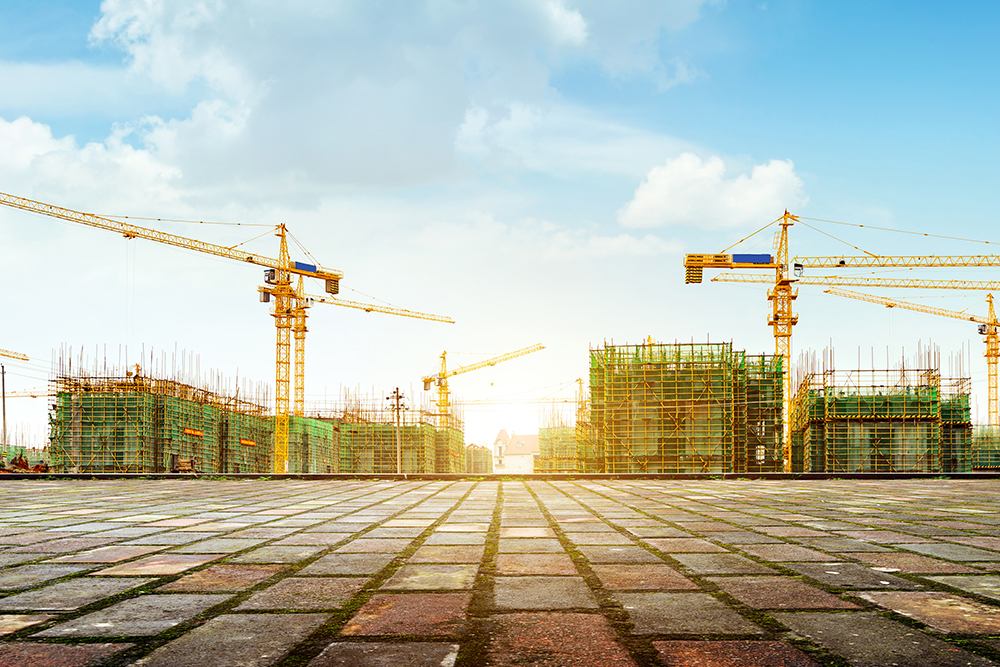
Governor Murphy’s Executive Order to Cease All Non-Essential Construction Projects: The Impact on Community Associations
Governor Murphy recently signed Executive Order No. 122, which, among other things, requires that all “non-essential” construction projects cease as of April 10, 2020 at 8:00 p.m., with limited exceptions. Clients are asking whether this applies to roadway paving, roof replacement and a host of other construction projects in their community association. The simple answer is, yes. While each question needs to be handled on a case-by-case basis, there are limited exceptions for permitted construction, particularly in condominium and townhouse styled homeowner’s associations.
Whether or not a construction service is permitted, will ultimately depend on the nature of the activity being performed. Our recommendation is that you start with the premise that the service is not permitted, unless, in consultation with counsel, you determine that it fits into one of the following permitted exceptions as an “essential construction project”:
- Projects necessary for the delivery of health care services, including but not limited to hospitals, other health care facilities, and pharmaceutical manufacturing facilities.
- Transportation projects, including roads, bridges, and mass transit facilities or physical infrastructure, including work done at airports or seaports.
- Utility projects, including those necessary for energy and electricity production and transmission, and any decommissioning of facilities used for electricity generation.
- Residential projects that are exclusively designated as affordable housing.
- Projects involving pre-K-12 schools, including but not limited to projects in Schools Development Authority districts, and projects involving higher education facilities.
- Projects already underway involving individual single-family homes, or an individual apartment unit where an individual already resides, with a construction crew of 5 or fewer individuals. This includes additions to single-family homes such as solar panels.
- Projects already underway involving a residential unit for which a tenant or buyer has already entered into a legally binding agreement to occupy the unit by a certain date, and construction is necessary to ensure the unit’s availability by that date.
- Projects involving facilities at which any one or more of the following takes place: the manufacture, distribution, storage, or servicing of goods or products that are sold by online retail businesses or essential retail businesses, as defined by Executive Order No. 107 (2020) and subsequent Administrative Orders adopted pursuant to that Order.
- Projects involving data centers or facilities that are critical to a business’s ability to function.
- Projects necessary for the delivery of essential social services, including homeless shelters.
- Any project necessary to support law enforcement agencies or first responder units in their response to the COVID-19 emergency.
- Any project that is ordered or contracted for by Federal, State, county, or municipal government, or any project that must be completed to meet a deadline established by the Federal government.
- Any work on a non-essential construction project that is required to physically secure the site of the project, ensure the structural integrity of any buildings on the site, abate any hazards that would exist on the site if the construction were to remain in its current condition, remediate a site, or otherwise ensure that the site and any buildings therein are appropriately protected and safe during the suspension of the project.
- Any emergency repairs necessary to ensure the health and safety of residents.
As you will see, there are very limited circumstances under which construction would be permitted. The exceptions listed in bold above are likely most applicable to community associations.
With this in mind, it is clear that emergency repairs necessary to ensure the health and safety of residents, such as the repair a of burst or leaking pipe, would be permitted. It also appears that road paving projects are permitted under the “transportation” exception, though we are seeking clarity with respect to whether this applies to both public and private projects and will update this article when information becomes available. However, starting a new siding or roofing project, would not be permitted. If, though, a construction project such as re-roofing had commenced on a particular building, it is our opinion that the roofing on that building could be concluded to secure the building and prevent ongoing water infiltration. But work that had not commenced on other buildings would be required to await a lifting of this order. Only “emergency” repairs would be permitted, and then only to the extent necessary to mitigate the emergency.
What About Maintenance?
A popular question we are receiving is, “what about maintenance, is that permissible?” The nomenclature you may attempt to apply to the work or service being provided cannot be a way around the Governor’s Executive Order. If you are making repairs or improvements to real property and the like, that is a “construction” service, and would be prohibited. “Maintenance” that would not be prohibited would include activities like cleaning, garbage removal, sanitation, etc. Whereas, routine “maintenance” of HVAC, plumbing and other building systems, would not be permitted (barring some necessity to undertake the maintenance to ensure the health and safety of your residents) as those are construction activities.
Are Landscaping Services Permitted?
Some landscaping services are prohibited as they would qualify as “non-essential construction.” For example, landscapers would not be permitted to install patios, walkways, pools, irrigation systems or undertake other similar projects, unless they were underway. If there was an emergent need to repair a walkway to prevent injury to others, this would be permitted. Likewise, irrigation start up and emergency repairs would also be permitted. More traditional “landscaping” services such as pruning and trimming, weed and pest control, mulching, plantings and mowing are all permitted. However, for all permitted activities, there is a limit of 5 crew members on site and all must be wearing gloves and facial coverings and social distancing rules apply.
Can We Open the Pool?
The pool cannot be open to residents. This includes use of hot tubs or pools for swimming and bathing, sun bathing around the pool and other gatherings at the pool. All community association pools must remain closed to use by the residents. The association may take the steps necessary to “ready” the pool to be open and maintain the system, provided that no other construction or repair activity is needed. For example, you could not undertake work on tiling or pool resurfacing at this time. These would be non-essential construction activities.
It is important that you begin with the premise that construction is not permitted, unless you can reasonably fit the service into one of the above listed exceptions. This must be analyzed on a case-by-case basis in consultation with counsel. Under the circumstances, it is not safe to paint a broad brush to any particular construction activity. And, yes, residential and commercial painting would be considered non-essential construction.
Becker New Jersey Community Association Practice Group is here for you.
If you have any questions about this or any other community association matter, please feel free to contact any of the attorneys in our New Jersey Community Association Practice Group.






